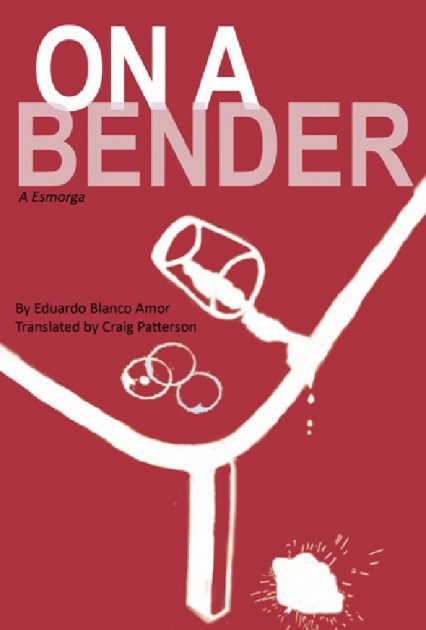James Vilares travelled to Chapter Arts Centre for the book launch of On a Bender by Eduardo Blanco Amor, translated by Craig Patterson.
There’s something about being on the Atlantic fringe of a colonial power, explains our host, translator Craig Patterson, that necessitates a word to describe a deep love of, longing for, sadness in memory of home. In Wales, it’s hiraeth. In Portugal, saudade. In Galicia, it’s morriña. It’s one of the fascinating contextual details Patterson reveals as he reads excerpts of his translation of Eduardo Blanco Amor’s On a Bender. There’s no direct translation in English for morriña, nor in Spanish, for that matter. And it’s a longing for your homeland born of historical similarities shared by Galicia and Wales: appended to an empire, reliant on a largely rural economy, possessing a (sometime) subjugated language, a people who must leave to find prosperity. It’s why there’s a natural link between Wales and Galicia: the two countries have much to learn from each other: historically, linguistically, spiritually. And it’s also why it’s unsurprising that Wales’ Planet magazine – with its own roots in Welsh language activism – has published the first English language translation of ‘A Esmorga’. About time, too.
The book’s title is a great one: On a Bender. It’s so fabulously colloquial, conjuring, as it does for me at least, memories of teenage rebellion. It’s a title bound up in the non-

by Eduardo Blanco Amor,
translated by Craig Patterson
Patterson includes all this in his prelude to the reading, where he contextualises the book by giving a potted history of Galicia. Other details he shares are important to an understanding of the book. Amor was one of these migrant Galicians, heading to Argentina like so many Galician intellectuals did. And it was there, while living in Buenos Aires, that Amor wrote On a Bender. In Galician. Feeling, as no doubt he did, that tremendous morriña. He wrote during the reign of Francisco Franco, a Galician himself, at a time when the Galician language was outlawed. Unable to find a publisher at home, Amor published On a Bender in Buenos Aires, and, given the Catholic hold on the media in Spain at this time, and given the content of this novel, it’s hardly surprising.
There are stories within stories here, detours, conversations recounted in full, unexpected adventures: all relayed by a man who was off his face on augardente, a Galician version of grappa. Unpicking the narrative would be interesting, but let yourself be caught up in Cibrán’s story-
It’s a fascinating book to dissect: the only voice is that of Cibrán, a drunken layabout being interviewed by the police after the events of the ‘bender’ of the title have taken place. But the narrative is instantly questioned by Cibrán himself:
‘No, Sir, it didn’t happen like it says on that piece of paper that they’ve read out…that’s not what really happened…Not the start of things, nor what came afterwards, nor the end. Nobody knows anything ‘cause nobody saw anything, and if they did see it they didn’t notice, ‘cause seeing is one thing and noticing another.’
What follows is Cibrán’s version of the three-
And, being as it is a witness statement to a policeman, argues Patterson, written at the height of Franco’s police state, this is a social commentary meant to expose the Guardia Civil’s brutal treatment of their own people. I can see where he’s coming from: there’s certainly police brutality here. But it would be a more comfortable reading if Cibrán, Gobs and Menaplenty’s antics hadn’t included arson, violent assault, theft and much more I’ll let you discover for yourself. If these had been political prisoners, perhaps this analysis might be more relevant.
Nonetheless, Patterson reads with passion for the book he’s just translated, and it’s refreshing. And it comes from his passion for Galicia (Patterson is currently the President of the International Association for Galician Studies). This is a model for how a launch of a translated novel should go, and I can only applaud Planet, and Patterson for that matter, for undertaking such thankless work in translating obscure Galician into English. As a half-










